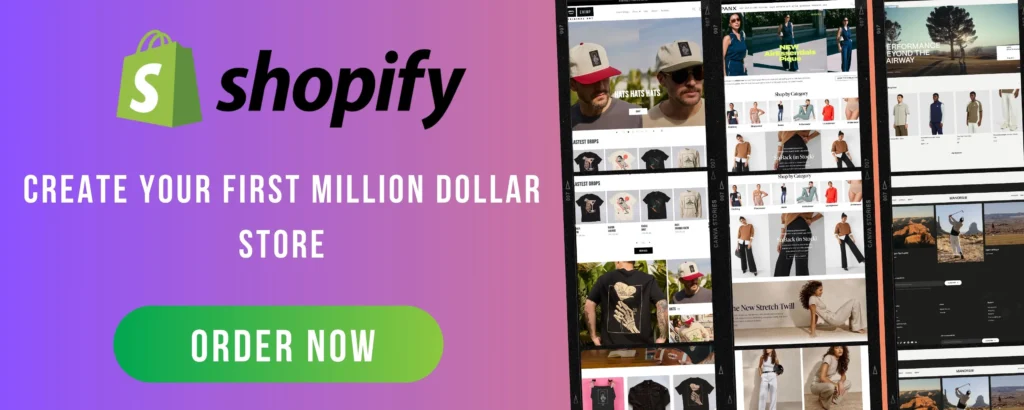
If you’re starting an online business, one of the first big decisions is choosing the right platform to sell your products. Two of the most popular options for small businesses and independent sellers are Shopify and Etsy. But which one is better for your business?
Both platforms offer unique advantages depending on what you’re selling, how much control you want, and your long-term goals. In this guide, we’ll compare Shopify and Etsy in terms of fees, customization, audience, ease of use, and growth potential to help you make the best choice.
1. Overview of Shopify and Etsy
What is Shopify?
Shopify is an e-commerce platform that allows you to build your own online store. It gives you full control over branding, design, pricing, and marketing. With Shopify, you get a customizable website where customers shop directly from you.
- Best for: Entrepreneurs who want a standalone online store.
- Example businesses: Apparel brands, handmade products, dropshipping, digital products.
What is Etsy?
Etsy is an online marketplace that connects buyers with sellers of unique, handmade, vintage, and craft supply products. Instead of running your own website, you list products on Etsy’s marketplace, where customers browse and buy from various sellers.
- Best for: Artists, crafters, and vintage sellers looking for an existing customer base.
- Example businesses: Handmade jewelry, vintage clothing, art prints, craft supplies.
2. Fees and Costs
Shopify Fees
- Monthly Subscription: Starts at $39/month (Basic Shopify), with advanced plans for scaling businesses.
- Transaction Fees: Shopify charges 2.9% + 30¢ per transaction (if using Shopify Payments). Additional fees apply if using other payment processors like PayPal.
- Additional Costs: Website domain, premium themes, and third-party apps.
Etsy Fees
- Listing Fee: $0.20 per listing, renewed every four months.
- Transaction Fee: 6.5% per sale (on the total cost, including shipping).
- Payment Processing Fees: 3% + 25¢ per transaction (varies by country).
- Etsy Ads (Optional): You can pay for promoted listings to increase visibility.
🔹 Which is cheaper?
For a low-cost startup, Etsy is cheaper since you only pay fees when you make sales. Shopify has a higher upfront cost but can be more profitable in the long run if you sell at a high volume.
3. Customization and Branding
Shopify Customization
✅ Full control over your store’s design, branding, and layout.
✅ Access to thousands of themes and apps for advanced features.
✅ Custom domain name (e.g., www.yourstore.com).
Etsy Customization
❌ Limited branding—your store is part of Etsy’s marketplace.
❌ No custom domain (your shop URL is something like etsy.com/shop/YourStore).
❌ Same layout as all Etsy stores, so it’s harder to stand out.
🔹 Which is better?
If branding is important to you, Shopify wins because you can fully customize your website and brand identity. Etsy is best for sellers who don’t need a unique website and just want to focus on selling.
4. Audience and Marketing
Shopify Audience & Marketing
- You have to bring in your own customers through social media, SEO, ads, and email marketing.
- Shopify offers built-in SEO tools, abandoned cart recovery, and integrations with Facebook, Instagram, and Google.
Etsy Audience & Marketing
- Etsy has millions of active shoppers searching for unique products.
- Etsy’s algorithm helps new sellers get discovered, but competition is fierce.
- Built-in Etsy Ads can boost visibility, but they cost extra.
🔹 Which is better?
Etsy is great for beginners who want instant traffic, while Shopify requires active marketing to attract customers.
5. Scalability and Growth Potential
Shopify Scalability
✔️ Ideal for businesses that want to scale and grow long-term.
✔️ Unlimited products, categories, and integrations with dropshipping and print-on-demand.
✔️ Ability to expand to multiple sales channels (Amazon, eBay, social media).
Etsy Scalability
❌ Growth is limited because Etsy controls the marketplace.
❌ High competition makes it hard to stand out as a big brand.
❌ No access to customer emails for long-term marketing.
🔹 Which is better?
For long-term business growth, Shopify is the clear winner because you own your store and can scale on your terms.
6. Pros and Cons Summary
| Feature | Shopify | Etsy |
|---|---|---|
| Startup Cost | Higher (Monthly fee) | Lower (Pay-per-sale) |
| Customization | Full control | Limited |
| Branding | Your own website | Etsy-branded shop |
| Marketing | You bring customers | Built-in Etsy traffic |
| Competition | Lower | Higher |
| Scalability | Unlimited growth potential | Limited growth |
7. Which One Should You Choose?
✔ Choose Shopify if:
- You want to build a long-term, scalable business.
- You need full control over your store and branding.
- You’re willing to invest in marketing to drive traffic.
✔ Choose Etsy if:
- You want to start selling quickly with minimal upfront cost.
- You sell handmade, vintage, or craft-related products.
- You don’t want to manage a standalone website.
👉 Best strategy? Some sellers use both Shopify and Etsy—they start on Etsy to get initial sales, then move to Shopify for long-term growth.
What’s your business goal? Are you leaning towards Etsy or Shopify? Let me know in the comments! 🚀